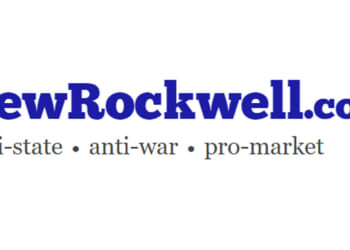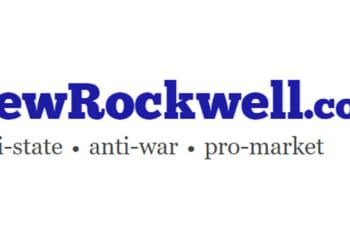Editorial note: this essay originally appeared at The Giving Review.
“Left-wing radicals have made a habit of chanting ‘death to America’ and ‘glory to the resistance’ led by Iran and its terrorist proxies. The First Amendment protects their right to do so, and it should,” Manhattan Institute legal policy fellow Tal Fortgang writes in a February Wall Street Journal op-ed. “But it doesn’t protect them from punishment for crimes: blocking roads, occupying campus spaces, vandalizing property, stealing and burning government-owned American flags, and even assaulting law enforcement.”
The activists’ intent in undertaking these activities is essentially to coerce citizens to urge or permit government policymakers and officials to just capitulate to whatever the underlying demand may be. In the op-ed and an in-depth, Winter 2025 City Journal article, Fortgang describes them as “civil terrorism”—with the adjective necessarily modifying the phenomenon of actual outright terrorism, which is meant to instill fear of violence to achieve the same end of meeting whatever an underlying demand may be. Fortgang recommends certain specific legal responses to civil terrorism, including against nonprofit groups that engage in it and, in some cases, their funders.
In August, a federal district-court judge in Chicago dismissed a class-action lawsuit essentially seeking to invoke the civil-terrorism concept. It was filed by drivers who were blocked by activists preventing them from using a highway to O’Hare Airport, thus causing the drivers to miss their scheduled flights. The district judge held that the suit sought to quash the activists’ free-speech rights and dismissed it; the dismissal is on appeal to the U.S. Court of Appeals for the Seventh Circuit. Earlier this month, Fortgang and his Manhattan Institute colleague Ilya Shapiro submitted an amicus curiae, or “friend-of-the-court,” legal brief in the case, Manhart v. WESPAC Foundation.
Last month, in another City Journal article, “How the White House Can Crack Down on Radical Groups—Legally,” Fortgang further explores legal responses to civil terrorism—along with ones to any radical-nonprofit involvement potentially related to violence more generally. “The White House does not need to target extremist groups for speech—’hate speech’ or otherwise—but for deeds,” Fortgang writes in the piece. “These groups break laws all the time, often blatantly. Their members’ worldview tends to lead them to do so. The Trump administration, therefore, can disrupt the forms of lawbreaking integral to these extremists’ strategy—and, in turn, cripple the networks that support political violence.”
Any pattern of “criminal conduct is what demands a federal crackdown,” he concludes.
The First Amendment protects even offensive speech, but it has never protected criminal conspiracy, material support for terrorism, systematic deprivation of others’ civil rights, or nonprofit fraud. And while it’s too quick to call for prosecutions, the feds have more than enough initial evidence to start asking questions—and to make these infamously opaque groups crack open their books.
Fortgang was kind enough to join me for a recorded conversation last week. In the first part of our discussion, which is here, he talks in general about whether and if so, the degree to which constitutionally protected free speech can be limited, and whether tax-exempt groups exercising the freedom of speech have a constitutional right or good policy claim to their nonprofit status. Echoing his writing, he also applies the civil-terrorism concept to certain specific, as in Manhart, and some hypothetical circumstances.
The just less than 20-minute video below is the second part, during which he talks more about the concept of civil terrorism and—in the nonprofit context—existing and potentially strengthened anti-racketeering and -conspiracy, anti-riot, and foreign-agent-registration laws, as well as the effects and potential reforms of regulations permitting fiscal sponsorship of projects and activities.
Racketeering and conspiracy
“I think of civil terrorism as a theory that helps explain the phenomenon we’re witnessing and that doesn’t require any new laws to deal with,” Fortgang tells me. “It just helps us make sense of the facts that we’ve all seen. It helps put them together a way that allows us to see the trees for the forest and might help us clarify what legal remedies are appropriate for dealing with this phenomenon.”
In the nonprofit context, “there is not an enormous history of grantors being held liable, civilly or criminally, for the actions of their grantees,” he says.
But theoretically, a grantor who knows that their grants are going to organize Illegal activity—what are known under the racketeering statutes as predicate acts—if you know that your money is going to fund organize, develop, predicate criminal actions, it is plausible that you could be prosecuted for conspiring to advance those acts.
It’s not really a novel legal theory. It would be novel in its application—which is not to say that it would be the first time that a nonprofit, faced criminal liability. It would take things to the next level. That might be what’s warranted here. … I think that is probably the greatest vulnerability in terms of the criminal law that nonprofits face in the civil-terrorism space.
As for anti-riot laws, “not all states have operative anti-riot statutes or they may not be geared towards the right tactics, but the truth is that those laws don’t go after the nerve center, if you will,” according to Fortgang. “They don’t go after the brain trust, they go after foot soldiers.
“The way to actually deal with the phenomenon, if you think that the phenomenon needs to be dealt with,” he continues, “is to go after the money and the organizers, and that requires looking at who is conspiring.” He cites the recently introduced FUNDERs Act, which makes rioting a predicate act for the federal Racketeering Influenced Corrupt Organizations (RICO) statute, which would “more cleanly connect[] the dots between people in grantmaking organizations encouraging this kind of rioting activity and the writing activity itself. I don’t think it’s totally necessary in order for criminal or civil prosecutions to proceed, but … it would make it a lot clearer.”
Fiscal sponsorship
Nonprofitdom’s fiscal-sponsorship mechanism “is the lowest-hanging fruit” for reform and “would be a great first step,” Fortgang says. Pursuant to a fiscal-sponsorship arrangement, of course, “an existing registered nonprofit takes on a new, a nascent up-and-coming nonprofit as a project, allowing that new nonprofit ostensibly to get off the ground,” he describes.
“The new nonprofit, the fiscally sponsored organization, does not need to file, its own” Internal Revenue Form 990 and “does not have the same transparency requirements” a nonprofit normally would. “It is essentially just an arm of the already existing nonprofit” that is sponsoring it. “This allows the new entity to raise funds through tax-deductible donations to the already existing organization, which is frequently if not always necessary for getting a new nonprofit off the ground.
“There’s nothing inherently nefarious about it,” Fortgang says. “I’ll say two things about it, though.” First, “fiscal sponsorship was not legislated into existence. … It was not a decision of the American people that this was something that we wanted in our tax code. … IRS rulings gave it legitimacy. That’s the first thing. No one voted for it.” Second, “it is definitely being abused,” he goes on, citing the Alliance for Global Justice’s fiscal-sponsorship program, which has attracted attention because of extremist activities carried out under its auspices.
There are at least two contemplated fiscal-sponsorship reforms, Fortgang notes, among others. First,
create an official agency relationship between the fiscal sponsor and the fiscal sponsee such that if the sponsee organization does illegal activities, the sponsor can be held accountable for it—which is kind of just like taking the notion of being a project of the sponsor seriously, if you’re going to be an arm of an existing nonprofit, that nonprofit needs to take some accountability for your actions.
Second, institute a time limit on fiscal sponsorship. “Maybe you have six months, or a year, or 18 months or 24 months to do that, and then you have to start filing your own 990s or find some other way to do business,” he says. Now, he readily acknowledges, sponsored groups and projects will “probably just jump from fiscal sponsor to fiscal sponsor,” so the reform could perhaps include automatic investigations of those
who register nonprofits or are involved with nonprofits that jump from let’s say, a minimum, jump to three fiscal sponsors over the course of 15 years or something. … It doesn’t need to be a crime, just mandated investigation. We want to know what the deal is. Are you really slow getting off the ground, or are you trying to abuse the process?
Fortgang also briefly addresses potentially more-aggressive application of the Foreign Agents Registration Act (FARA) to nonprofits, saying while it’s probably appropriate in certain cases, he “wouldn’t call it the lowest-hanging fruit” for reform.
Objections and an offered answer
Fortgang concludes by summarizing objections to his work in this area that are sometimes raised by friends in the nonprofit sector: “Tal, you work at a nonprofit. Aren’t you worried that people are going to come after the Manhattan Institute? And just more generally, shouldn’t we be more hands-off when it comes to the nonprofit sector?”
He offers an answer. “What a beautiful thing it is that we have such a robust civil society that people care to give charity, to educate their fellow Americans, and to agitate for what’s good and true,” he says.
To all that, I say, yeah, that is a great blessing, but it’s also not a total coincidence that malevolent actors would settle into the nonprofit space. It offers a kind of legitimacy and comfort and shield from transparency that bad actors would necessarily want. It’s kind of a sweet spot to be a fiscally sponsored entity where you can avoid talking about where your money comes from even as your donations are treated as tax-deductible.
I don’t think we should be shocked that there’s some abuse of the nonprofit system going on. It’s only natural. I say to those who want to preserve our robust civil society and the nonprofit sector, you need to reinforce those boundaries. You’re going to lose the nonprofit sector entirely if you cannot get it under control.
Americans are not going to stand for tax deductions subsidizing domestic terrorism, nor should they. That’s preposterous. We need to be able to trust the system, and that requires enforcing the rules that keep it honest and accountable to the American people. I say to those to those who want to preserve the nonprofit sector, I’m with you 100%. I am. That requires enforcing the rules.











